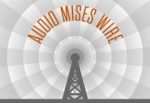Dr. Mark Brandly examines what’s genuinely hard and what’s overstated about Gen Z’s economic situation, arguing that inflation, regulation, and a bloated welfare–bureaucratic state are driving their struggles, and urging students to learn economics and join the fight for liberty.
Read More »2025-12-09




















